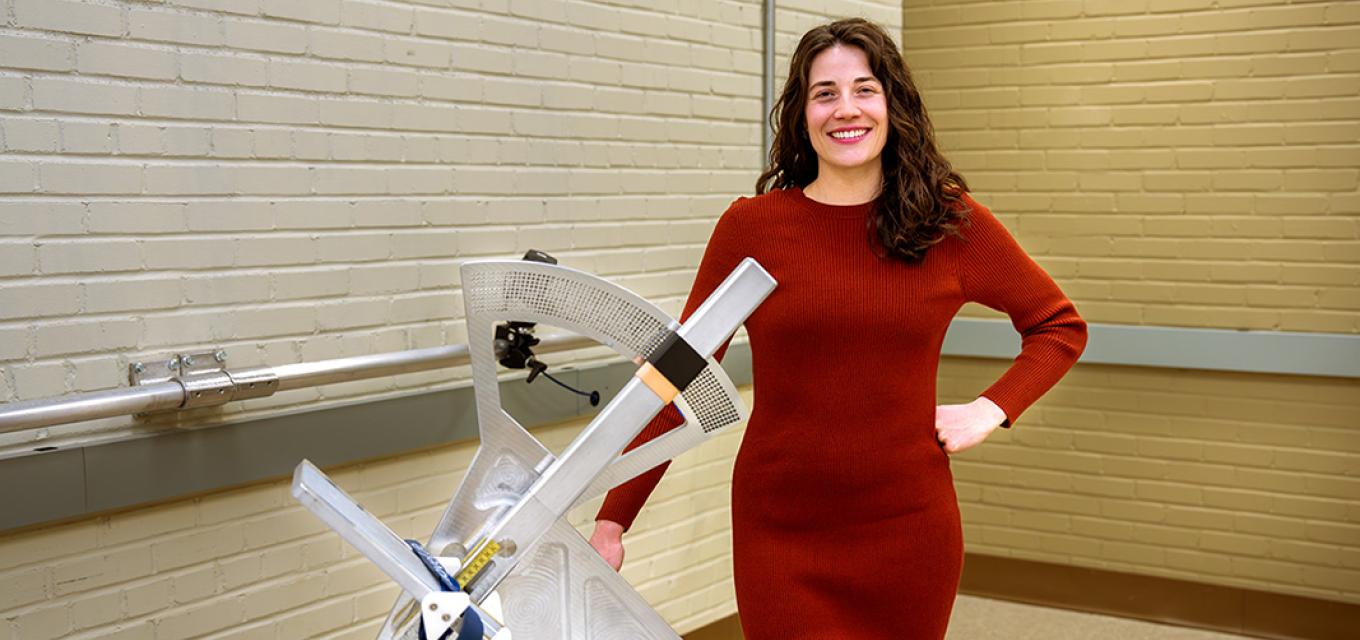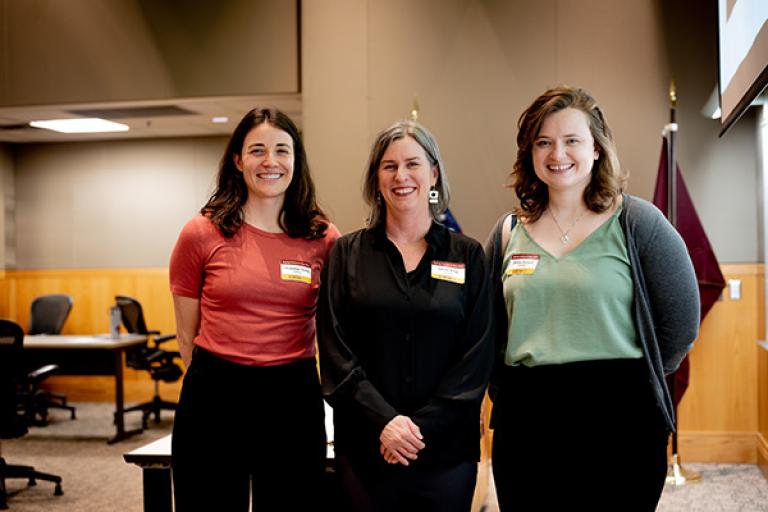2024 Spring / Summer

A doctoral journey of community and support
JACQUELYN SERTIC REFLECTS ON HER PHD PATH THROUGH THE SCHOOL OF KINESIOLOGY
In the world of academia, the path to becoming a scientist is often portrayed as a linear progression, characterized by deliberate steps and premeditated decisions. However, my journey through academia has been anything but conventional. As I stand on the cusp of completing my dissertation and embarking on a post-doctoral position, I reflect on the twists and turns that brought me here, and the invaluable role that supportive communities have played in my success.
My name is Jacquelyn Sertic, and my research delves into the intricate realms of sensory function and motor control, particularly in aging adults and individuals with Parkinson’s disease. Throughout my doctoral tenure, I have been fortunate to seize numerous opportunities that have enriched my academic and professional growth. From being awarded prestigious fellowships like the NSF Research Trainee Program in Translational Sensory Science and the Doctoral Dissertation Fellowship, to interning at the National Institutes of Health and organizing conferences, each experience has contributed to shaping my trajectory as a scientist.
Yet, my journey began with a divergence from the conventional path. Originally aspiring to pursue a career in medicine, I found myself at a crossroads during my senior year of college. The prospect of sacrificing work-life balance in pursuit of a medical degree led me to reconsider my aspirations. It was during this uncertain period that I received a pivotal piece of advice: “It will all work out.” Little did I know this mantra would guide me through the subsequent chapters of my academic journey.
Following the culmination of my collegiate softball career, fate intervened as offers to serve as a graduate assistant coach at both the University of Minnesota and the University of Nevada, Las Vegas (UNLV) presented themselves. Opting for the latter, I embarked on a new academic venture, enrolling in UNLV’s Master of Science Kinesiology program. Despite my background in zoology and chemistry, I found myself captivated by the study of movement and motor skills.
A pivotal moment arrived during my first year at UNLV when I encountered the field of motor control and development. Instantaneously, I was drawn to its complexities and potential for impactful research. This newfound passion guided my master’s thesis, exploring different psychological manipulations to improve throwing accuracy in college softball players, and ultimately led me to the University of Minnesota where I found a supportive research environment aligned with my interests.
The transition to doctoral studies brought its own set of challenges, as the demands of the program and starting the program during peak pandemic in fall 2020 tested my resilience and determination. Yet, amidst the rigors of academia, I discovered the power of community and camaraderie. The NSF fellowship in Translational Sensory Science introduced me to a cohort of like-minded scholars from diverse disciplines. Despite our disparate fields, we forged deep connections both professionally and personally.
I’ve had the privilege of collaborating and enjoying the company of these remarkable individuals. Shelby Ziccardi and I co-chaired the Center for Applied and Translational Sensory Sciences (CATSS) Spring Research Day in 2023. Together, we meticulously organized the recruitment of student speakers, ensuring a diverse range of presentations on sensory disability. Additionally, we orchestrated 10 workshops covering various topics, from data collection methods to ethical science within disability communities. Throughout the planning process, our foremost priority was to prioritize disability accessibility. Despite the demanding workload, collaborating with Shelby felt effortless. We complemented each other’s strengths and communicated seamlessly about our shared objectives. Our joint efforts resulted in an event that was embraced by over 80 attendees. Building upon this collaboration, Shelby and I continue to stay connected, regularly meeting for lunches or writing sessions. Similarly, with my friend Harley Wheeler, our bond revolves around staying active. Over the past few years, we’ve enjoyed cross-country skiing in winters and biking during summers. Completing this circle of support is Michael Smith, with whom we often explore new breweries in the cities. As a collective, we revel in each other’s triumphs and extend unwavering support through setbacks we encounter.

As I reflect on my journey, I am reminded that success in academia is not solely determined by the linear progression of one’s path, but by the strength of the communities that sustain us along the way. The friendships forged and the support networks cultivated have been instrumental in navigating the uncertainties of doctoral studies. As I prepare to embark on a new chapter in rehabilitation science, I carry with me the invaluable lessons learned and the enduring bonds formed within the halls of the University of Minnesota.
My journey may have been marked by its unconventionality, but it is the support of my academic community that has enabled me to thrive. As alumni, let us celebrate not only the achievements of individuals but also the communities that nurture and sustain them on their path to success.
Jacquelyn Sertic is a fourth-year PhD student in the School of Kinesiology. Her areas of interest include biomechanics and neuromotor control.
Photo credit(s): Jairus Davis and Courtesy of Jacquelyn Sertic